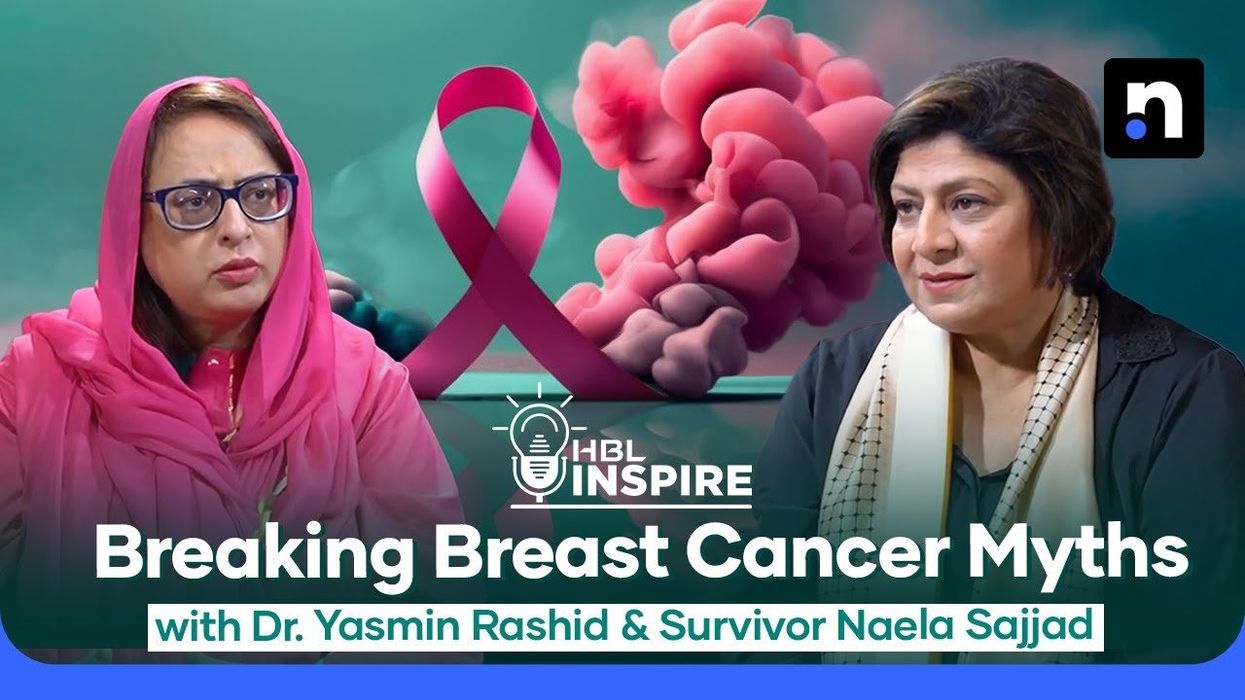How working through chemo helped a breast cancer survivor
Karachi banker Naela Sajjad says returning to work gave her purpose and helped her heal.

Partner Content
To break the news of her cancer diagnosis, Naela Sajjad took her family out for lunch at a nice restaurant. She didn’t want to deal with extreme emotions.
“I took them out for lunch. I didn’t want to break that news at home and have everybody go through extreme emotions,” said Sajjad, a breast cancer survivor.
Sajjad works for a bank in Karachi, Pakistan's business hub. When she told her family, “everybody was very surprised and shocked and sad, all at the same time.”
She decided to keep working through her treatment. Work, she said, kept her grounded.
Thankfully, her doctors and workplace supported her. “The only time I took the day off was when I had surgery. I worked through my chemo as well,” she said.
“The doctors helped me schedule my [chemo sessions] on Friday afternoon, then I used to get two days off, and I used to be back in the office on Monday.”
Sajjad first found a lump at home during the Eid holidays.
“I always thought it’s not going to happen to me. No one had breast cancer in my family. And I had kids and I breastfed them,” she said. “It was the size of a golf ball.”
A mammogram and biopsy confirmed her fears — it was stage two.
But with the right treatment and support, she lived to tell her story.
“The treatment is long, sometimes painful,” she said. “But after it was over, one thing — I loved life more. In terms of my relationships, I value them more.”
Dr. Yasmin Abdul Rashid, an oncologist, said Sajjad was fortunate to have a strong support system. “Many of my patients are not as lucky,” she said. “Many women are burdened with putting the emotional needs of their families over their own.”
“Emotional support definitely improves treatment outcomes,” she added.
Recounting one of her cases, Rashid said, “A neighbor would visit her and tell her cancer is God’s wrath on her actions.”
The myths around cancer are many — that it spreads by touching or sharing food. “It’s not true,” said Rashid.
Early detection, she stressed, is key. “Breast cancer is a disease where cells start growing uncontrollably. The reasons can be genetic, or due to any abnormal mutation. And then, advancing age.”
She also urged women to regularly self-examine their breasts for any unusual lumps or changes, such as a discharge.
“If you’re 40, you should get your annual mammogram. If there’s a family history, start screening earlier.”











Comments
See what people are discussing